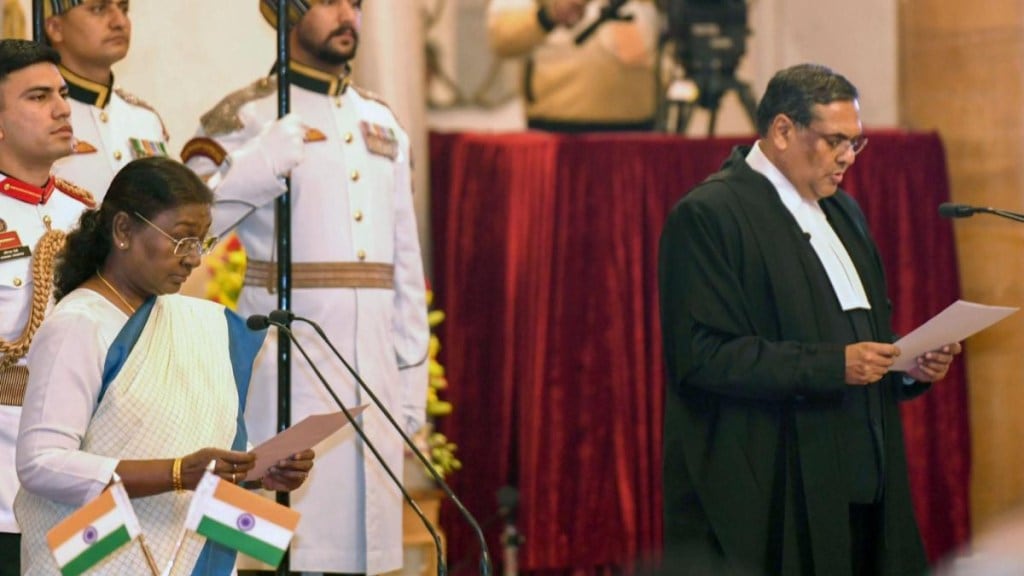Soon after being sworn in as the 51st Chief Justice of India, Justice Sanjiv Khanna commenced judicial proceedings on Monday. On his first day as Chief Justice of India, he thanked lawyers for wishing him well. Justice Khanna was sworn in earlier in the day by President Droupadi Murmu at a brief ceremony at the Rashtrapati Bhavan. ‘Thank you,” said the CJI who assembled in courtroom one alongwith Justice Sanjay Kumar minutes after noon.
Succeeding outgoing CJI DY Chandrachud, Justice Khanna’s six-month tenure is set to end in May 2025. With an extensive legal career covering constitutional law, commercial law, taxation and environmental cases, his tenure is highly anticipated.
Justice Khanna has been pivotal in delivering key rulings in the past. Let’s take a look at some of the landmark judgements he took or was part of the bench:
Electoral Bonds case
Among his most influential decisions is the Electoral Bonds case. In February 2024, as part of a five-judge bench, he ruled the controversial electoral bonds scheme unconstitutional. Concerns about donor transparency and potential misuse led him to dismiss arguments for donor privacy, noting that banking officers are already aware of donor identities.
EVM-VVPAT cross verification case
Some of the notable judgments of Justice Khanna in the Supreme Court include upholding the use of electronic voting machines (EVMs) in elections, saying the devices were secure and eliminating booth capturing and bogus voting. In the EVM-VVPAT Cross Verification case, he addressed public outrage in April 2024 by rejecting petitions against the use of Electronic Voting Machines (EVMs) in Lok Sabha elections. Instead of recommending a return to paper ballots, Justice Khanna directed the Election Commission to issue slips with party symbols or barcodes after each vote, enhancing transparency in counting procedures.
Abrogation of Article 370 case
In a significant 2023 decision on the Abrogation of Article 370, Justice Khanna was part of the bench that upheld the removal of Jammu and Kashmir’s special status. He firmly stated that this move did not undermine India’s federal structure, arguing it aligned with national interests.
Judicial independence and transparency
Justice Khanna’s 2019 judgement reinforced the delicate balance between judicial independence and transparency. He ruled that the office of the Chief Justice of India falls under the ambit of the Right to Information (RTI) Act. He, however, highlighted that the court’s Chief Public Information Officer (CPIO) must evaluate RTI requests on a case-by-case basis, weighing public interest against privacy concerns.
Granting bail to Arvind Kejriwal
In July 2024, Justice Khanna also granted interim bail to the then-Delhi CM Arvind Kejriwal, citing the lack of clear grounds for arrest under the Prevention of Money Laundering Act (PMLA). His decision emphasised the importance of safeguarding personal liberty while evaluating arrest justifications.

